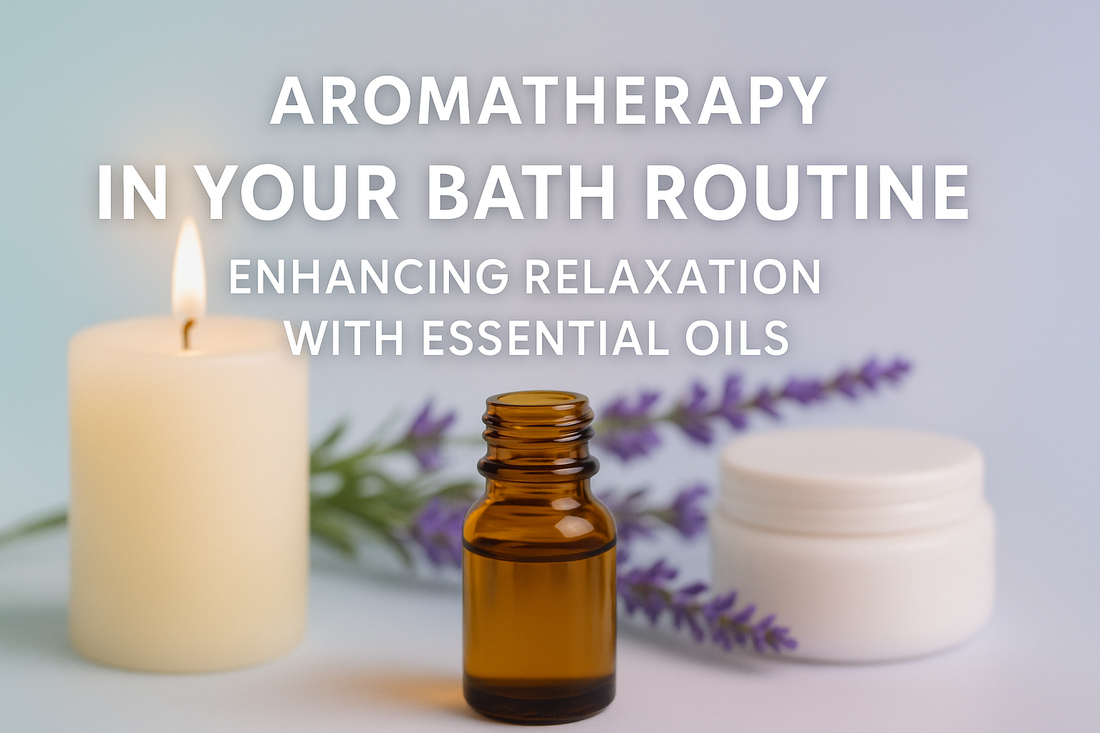
Transforming your bath into a fragrant sanctuary can turn an ordinary soak into a deeply restorative experience. Aromatherapy—the practice of using plant-derived essential oils to promote physical and emotional well-being—has been embraced for centuries. When incorporated thoughtfully into your bath routine, essential oils can soothe tension, uplift mood, and nurture the body and mind. This guide will explore the basics of aromatherapy, recommend key essential oils, outline blending and usage tips, and cover safety considerations for a truly relaxing bath ritual.
What Is Aromatherapy?
Aromatherapy harnesses the natural aromatic compounds found in plants. Essential oils are concentrated extracts obtained through steam distillation or cold pressing of flowers, leaves, bark, or roots. Each oil carries unique therapeutic properties:
-
Psychological Effects: Scents interact with the limbic system in the brain, influencing emotions, memory, and stress responses.
-
Physical Benefits: Certain oils possess anti-inflammatory, antiseptic, or muscle-relaxing qualities when absorbed through the skin or inhaled.
By pairing the warm, hydrating embrace of bathwater with carefully chosen aromatics, you create a multi-sensory ritual that promotes deeper relaxation and restores balance.
Top Essential Oils for Your Bath
Here are some of the most popular essential oils for enhancing a bath’s calming and restorative benefits:
-
Lavender
-
Benefits: Calms the nervous system, eases tension, and supports restful sleep.
-
Use: Ideal for evening baths or after a stressful day.
-
-
Chamomile
-
Benefits: Soothes irritation, reduces inflammation, and promotes relaxation.
-
Use: Great for sensitive or easily agitated skin.
-
-
Ylang Ylang
-
Benefits: Uplifts mood, reduces anxiety, and balances sebum production.
-
Use: Perfect when you need a gentle mood boost.
-
-
Eucalyptus
-
Benefits: Clears breathing passages, relieves muscle soreness, and invigorates the senses.
-
Use: Excellent for post-workout soaks or when you’re feeling congested.
-
-
Rosemary
-
Benefits: Stimulates circulation, sharpens mental focus, and relieves aches.
-
Use: Best for morning baths to energize and awaken the mind.
-
-
Sweet Orange
-
Benefits: Uplifts spirit, reduces stress, and imparts a cheerful citrus aroma.
-
Use: A bright addition to any daytime or weekend bath.
-
Blending and Usage Guidelines
To ensure even dispersion and safe skin contact, follow these simple guidelines when adding essential oils to your bath:
-
Dilute Beforehand: Mix 5–10 drops of essential oil with a tablespoon of carrier oil (such as sweet almond, jojoba, or fractionated coconut oil) before adding to the tub. This prevents skin irritation and promotes even distribution.
-
Layering Scents: Create bespoke blends by combining complementary oils (e.g., lavender + chamomile for extra calm, or eucalyptus + rosemary for an energizing blend). Start with a total of 5–10 drops per bath to avoid overwhelming the senses.
-
Timing: Add the diluted blend once the tub is two-thirds full, stirring gently with your hand to swirl the oils throughout the water.
-
Temperature: Keep the water warm but not scalding (ideally 100°F/38°C) to preserve the integrity of heat-sensitive oils.
Bath Ritual Enhancements
Elevate your aromatherapy experience with these simple additions:
-
Epsom Salts: Combine essential oils and Epsom salts to ease muscle tension and enhance mineral absorption.
-
Herbal Sachets: Place dried flowers—like lavender buds or chamomile blossoms—in a muslin bag and let it steep alongside your essential oils.
-
Soft Lighting: Dim the lights or use candles (unscented if you’re relying solely on essential oils) to create a tranquil ambiance.
-
Gentle Music: Play soft instrumental or nature sounds to deepen relaxation.
Safety Considerations
While essential oils offer many benefits, it’s important to use them responsibly:
-
Patch Test: If you’re new to an oil or have sensitive skin, apply a small diluted amount to your forearm and wait 24 hours to check for adverse reactions.
-
Avoid Certain Oils: Oils such as cinnamon bark, oregano, or clove are very potent and can cause irritation in a bath context—best reserved for diffusers in low dilution.
-
Consultation: If you’re pregnant, nursing, or managing a medical condition (like high blood pressure or epilepsy), seek advice from a qualified aromatherapist or healthcare provider before use.
-
Children and Pets: Many oils suitable for adults are too strong for young children or can be harmful to pets—research child-safe oils and ensure good ventilation.
Creating Your Own Signature Bath Blend
Experiment with these popular starter blends:
-
Calming Night Bath: 4 drops lavender + 3 drops chamomile + 3 drops sweet orange
-
Muscle Soother: 5 drops eucalyptus + 3 drops rosemary + 2 drops ginger (diluted with carrier oil and Epsom salts)
-
Mood Lifter: 4 drops bergamot + 4 drops ylang ylang + 2 drops grapefruit
Adjust ratios to suit your preferences, and always keep a notebook to record recipes that bring the most benefit.
Final Thoughts
Integrating aromatherapy into your bath routine is an elegant way to care for both body and mind. By selecting high‑quality essential oils, following safe dilution practices, and crafting a serene environment, you can transform a simple soak into a ritual of renewal. Whether your goal is to unwind after a busy day, ease muscle tension, or uplift your spirits, the power of plant-based aromatics awaits in every drop.
Embrace the art of aromatherapy and let your bath become a sanctuary—a place where relaxation, balance, and well-being converge one fragrant soak at a time.